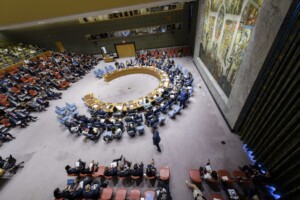UN agencies to help Sudan tackle climate change, hunger
Two UN entities today announced a cooperation agreement to help Sudan manage its natural resources, combat hunger and improve livelihoods, and at the same time mitigate the effects of climate change.
Two UN entities today announced a cooperation agreement to help Sudan manage its natural resources, combat hunger and improve livelihoods, and at the same time mitigate the effects of climate change.
The UN News Centre reported yesterday that the UN Environment Programme (Unep) and the UN World Food Programme (WFP) signed a Letter of Agreement earlier this month. The Letter formalises their collaboration on activities supporting the Sudanese government in assisting vulnerable communities in the country.
“Unep is confident that this agreement with WFP will assist us to mainstream improved environmental management with humanitarian and early recovery activities through the wide-spread, professional presence of WFP in Sudan, ultimately helping recipient communities build resilience to climate change,” Unep Representative Bradley Smith said.
Unep and its partners are promoting innovative natural resource management mechanisms that will contribute to improved livelihoods and climate resilience, while reducing conflict over precious natural resources such as water, forests and range-land.
“This agreement shows our commitment to the outcomes of the United Nations climate change conference that has just concluded in Paris,” WFP’s Sudan Country Director Adnan Khan said.
“We are very pleased to have this opportunity to work with Unep in assisting the Government of Sudan to address environmental issues and the challenges of climate change that could damage efforts to achieve Zero Hunger, especially where these involve smallholder farmers and other vulnerable groups that we assist through our programmes,” he added.
WFP supports vulnerable groups in Sudan in building their resilience to climate-related shocks and disasters while restoring livelihoods among internally displaced people, refugees and vulnerable communities.
The necessity of climate analysis and disaster-risk reduction is rapidly becoming apparent in Sudan, as fears grow that delayed and insufficient rainfall caused by this year’s El Niño weather pattern, which brings devastating droughts or catastrophic floods to different areas of the globe, has hurt crop development in key production areas of Sudan and increased the risk of below-average yields.









 and then
and then